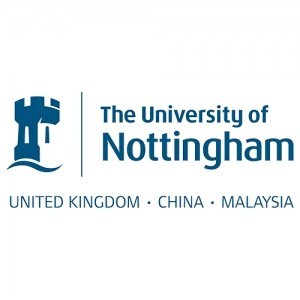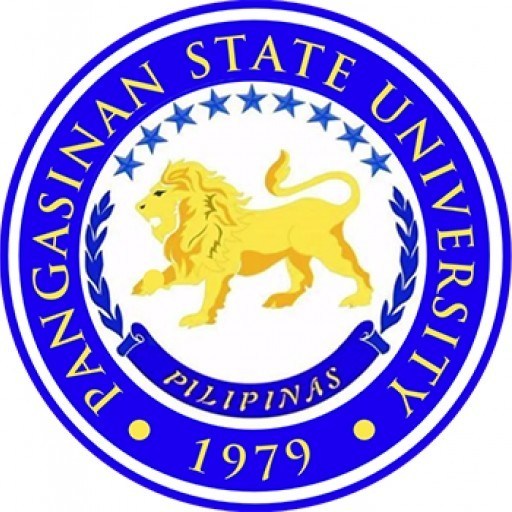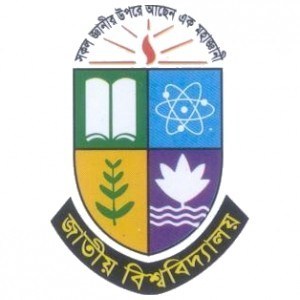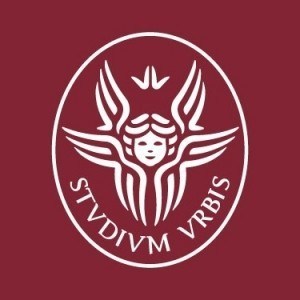Photos of university / #tudelft
Chemical Engineering at Delft University of Technology offers a comprehensive and innovative curriculum designed to prepare students for a successful career in the chemical industry and related fields. This programme combines fundamental sciences such as chemistry, physics, and mathematics with applied engineering principles, enabling graduates to develop efficient, sustainable, and safe processes for the production of chemicals, materials, and energy. Throughout the programme, students engage in a blend of theoretical coursework, practical laboratory work, and challenging design projects that foster critical thinking, problem-solving skills, and teamwork. Emphasizing sustainable development and environmental responsibility, the curriculum incorporates cutting-edge topics like process intensification, renewable energy, and circular economy concepts, preparing students to address the global challenges of resource scarcity and environmental impact. The programme is structured to provide a solid foundation in core disciplines such as fluid mechanics, thermodynamics, heat and mass transfer, and process control, as well as specialized courses in reaction engineering, process design, and simulation. Students gain hands-on experience through internships and laboratory exercises, which enhance their practical skills and industry insights. Delft University of Technology's strong connections with industry partners offer students unique opportunities for networking, internships, and collaborative projects, ensuring their education is aligned with current industrial needs. The programme fosters an entrepreneurial mindset, encouraging students to innovate and develop sustainable solutions. Upon graduation, students are equipped with the technical expertise, analytical abilities, and leadership qualities necessary to excel as chemical engineers in various sectors including pharmaceuticals, energy, food, and materials manufacturing. The internationally recognized programme prepares graduates for diverse career paths or advanced studies, making them valuable contributors to technological and societal progress worldwide.
The Bachelor’s degree programme in Chemical Engineering at Delft University of Technology offers a comprehensive and rigorous education designed to prepare students for innovative careers in the chemical industry, process industry, and related technological fields. The programme combines fundamental principles of chemistry, physics, mathematics, and engineering with practical applications to ensure graduates are well-equipped to develop, optimize, and implement chemical processes responsibly and sustainably. Throughout the three-year course, students gain a solid foundation in core subjects such as thermodynamics, fluid mechanics, heat and mass transfer, and reaction engineering, alongside specialized topics like materials science, process control, and environmental engineering. The curriculum emphasizes laboratory work, project-based learning, and teamwork to foster practical skills, critical thinking, and problem-solving abilities. Students are engaged in a variety of design projects and simulations, encouraging innovative solutions to real-world challenges faced by the chemical and process industries. The programme also covers topics related to sustainability, circular economy, and the social impact of chemical processes, preparing students to contribute to a more sustainable future. Additionally, during their studies, students have opportunities for internships and collaborations with industry partners, enhancing their practical experience and professional readiness. Graduates of this programme will be capable of designing, analyzing, and improving chemical processes, with competencies in systems thinking and interdisciplinary collaboration. The programme’s research-active faculty and state-of-the-art laboratories provide an inspiring environment conducive to learning and innovation. Upon completion, students will be equipped with the skills necessary for advanced studies or a successful career in chemical engineering, process technology, or research and development sectors. This degree paves the way for a wide range of career opportunities including roles in production management, process design, quality control, and sustainability consultancy, enabling graduates to make meaningful contributions to society through technological advancements and sustainable practices.
Admission requirements
BSc (or equivalent) Chemical Engineering. Related fields: extra modules during MSc to make up for Chemical Engineering deficiencies.
Other requirements
- minimum kennis (ISPAC: overige vereisten) Zie www.tudelft.nl.msc
- vooropleiding (ISPAC: vereiste vooropleiding) BSc-graad (of zijn equivalent) in Chemical Engineering. Gerelateerde studies: extra modules gedurende de master zullen worden aangeboden om het gebrek aan Chemical Engineering-kennis bij te werken.
- vooropleiding (ISPAC: vereiste vooropleiding) BSc (or equivalent) Chemical Engineering. Related fields: extra modules during MSc to make up for Chemical Engineering deficiencies.
- werkervaring (ISPAC: vereiste werkervaring) Niet verplicht, maar alle relevante ervaring wordt meegenomen bij het beoordelen van de kandidaten voor toelating.
- werkervaring (ISPAC: vereiste werkervaring) Not obligatory, but all relevant experience will be taken into account when assessing the candidate's suitability for admission.
- gemiddeld cijfer A Bachelor's Cumulative Grade Point Average (CGPA) of at least 75% of the scale maximum; for country specific requirements see http://www.tudelft.nl/en/study/studying-at-the-tu-delft/admission-and-application/msc-with-international-degree/admission-requirements/
- schriftelijk verzoek A clear and relevant essay in English (1,000 - 2,000 words) addressing the following: * Your motivation for taking the MSc programme of your choice. * Why you wish to pursue this programme abroad and/or in the Netherlands in particular. * Why you are interested in TU Delft and what you expect to find here. * Which programme specialisation(s) interest you most, and why? * Describe your hypothetical thesis project; what kind of a projectwould you prefer if you were free to make a choice? Also briefly explain what you would want to explore in your thesis project. Provide a maximum of three hypothetical thesis topics and elaborate on your particular interests in them. * A brief summary (maximum 250 words) of the thesis work or the final assignment (to be) done for your Bachelor's programme, including information on the credits earned, grade, and full workload.
Financing studies at Delft University of Technology for the Bachelor’s and Master’s programmes in Chemical Engineering primarily involve a combination of government grants, student loans, scholarships, and personal funding. Dutch students benefit from the Dutch government’s Student Finance system, which offers loans and grants designed to support domestic and EU/EEA students pursuing higher education in the Netherlands. These student loans are typically income-dependent and can cover tuition fees as well as living expenses. For non-EU/EEA students, financing options are more limited, and many rely heavily on personal savings, scholarships, or external funding sources.
Delft University of Technology also participates in various scholarship programs aimed at attracting talented students worldwide. For example, the TU Delft Excellence Scholarships include the Justus & Louise van Effen scholarship, which offers full or partial funding to outstanding international students enrolled in selected master's programmes, including Chemical Engineering. These scholarships often cover tuition fees and may include a monthly allowance to support living costs, but applicants typically need to demonstrate excellent academic results and meet specific eligibility criteria.
Students funding their studies through personal means often combine part-time work with their studies, although the intensive nature of the Chemical Engineering programme can limit employment opportunities. Dutch students may also receive parental support or savings accumulated prior to their studies. Additionally, some students select internships or cooperative education components that may provide stipends or paid work experience integrated with their degree.
Financial planning is an essential aspect of studying at TU Delft. International students are advised to budget carefully, considering tuition fees—which vary for EU/EEA and non-EU/EEA students—and living expenses, including accommodation, health insurance, transportation, and daily necessities. TU Delft also provides financial advice and support services to help students manage their funds effectively throughout their academic journey. Overall, financing a degree in Chemical Engineering at TU Delft involves a mix of public funding, scholarships, personal savings, and, in some cases, external sponsorships, ensuring students can focus on their studies and research activities without undue financial burden.
Chemical Engineering at Delft University of Technology offers a rigorous and comprehensive education designed to prepare students for innovative roles in the chemical industry and related sectors. The program emphasizes fundamental principles of chemistry, physics, and mathematics, combined with practical engineering skills to develop sustainable solutions for complex chemical processes. Students engage in a curriculum that covers thermodynamics, reaction engineering, process design, materials science, and environmental technology, ensuring a well-rounded understanding of how to design, operate, and optimize chemical processes safely and efficiently.
The programme incorporates extensive laboratory work, design projects, and internships, enabling students to gain hands-on experience and apply theoretical knowledge to real-world challenges. Collaboration with industry partners and research institutions provides students with insights into current technological advancements and future trends in chemical engineering. Dutch innovation in sustainable energy, water treatment, and circular economy strategies are integrated into coursework, reinforcing the program's focus on sustainable development.
Students also have opportunities to participate in international exchanges and engage with a diverse, global student community, fostering multicultural understanding and networks vital for careers in global industries. The programme is delivered by renowned faculty members who are active researchers, ensuring students are taught at the forefront of scientific and technological developments. Graduates of the programme are well-equipped for careers in process industry, consulting, research and development, or to pursue further study, such as a Master's degree or PhD.
The university's state-of-the-art laboratories and facilities support innovative research and practical learning, enabling students to experiment with cutting-edge technology and develop solutions for pressing societal issues like renewable energy, climate change, and resource management. The programme promotes critical thinking, problem-solving, and teamwork skills essential for leadership roles in technical fields. Overall, Delft’s Bachelor’s in Chemical Engineering combines theoretical foundations with practical application, fostering engineers capable of making a meaningful impact on society through technological advancements and sustainable practices.









